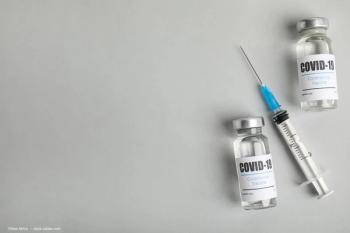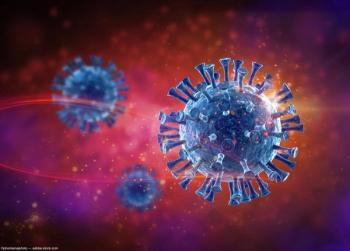
Addressing persistent long COVID-19 symptoms
Investigators have cited the need for pharmacologic and non-pharmacologic interventions to improve the ongoing burden after hospitalization for COVID-19.
A report from the PHOSP-COVID Collaborative Group found that the sequelae in patients who had been hospitalized with COVID-19 are “substantial” 1 year after hospital discharge, with few patients fully recovering.
“Patient-perceived health-related quality of life remains reduced at 1 year compared to pre-hospital admission,” according to the lead author of the study, Rachael A. Evans, PhD, from the Institute for Lung Health, National Institute for Health Research Leicester Biomedical Research Centre, University of Leicester, Leicester, UK. “Systematic inflammation and obesity are potential treatable traits that warrant further investigation in clinical trials.”
Because there are currently no effective pharmacologic or non-pharmacological interventions for long COVID, Evans and her colleagues set out to identify potential therapeutic targets by focusing on 4 recovery clusters. These include very severe; severe; moderate/cognitive; and mild, related to the severity of physical, mental health, and cognitive impairments that had been previously described 5 months after patients were discharged from the hospital, the underlying inflammatory profiles, and the relationship with clinical outcomes at 1 year.
In this prospective longitudinal cohort study, the researchers recruited patients who were hospitalized with COVID-19 in the UK. The authors assessed patient-reported recovery outcomes measure, physical performance, and organ function 5-months and 1 year after hospital discharge.
The study included 2320 adults who had been assessed 5 months after hospital discharge; 807 (35% women; mean age, 58.7 years) of them completed the evaluations at the 2 time points. More than one quarter of these patients, 27.8%, underwent invasive mechanical ventilation.
The investigators reported that the percentages of patients who reported achieving full recovery from the COVID-19 infection were basically unchanged between 5 months (25.5%) and 1 year (28.9%). Three factors were correlated with the absence of a full recovery at 1 year: female sex (odds ratio [OR], 0.68; 95% confidence interval [CI], 0.46-0.99), obesity (OR, 0.50; 95% CI, 0.34-0.74), and invasive mechanical ventilation (OR, 0.42; 95% CI, 0.23-0.76).
Cluster analysis of 1636 patients was corroborated with the four clusters, very severe, severe, moderate/cognitive, and mild, related to the severity of physical, mental health, and cognitive impairments at 5 months in a larger sample, the authors reported.
“There was elevation of inflammatory mediators of tissue damage and repair in both the very severe and the moderate/cognitive clusters compared to the mild cluster including interleukin-6, which was elevated in both comparisons,” Evans said.
Investigators reported a substantial deficit in the median interquartile range EQ-5D-5L utility index from the pre-COVID retrospective assessment, 0.88 (0.74-1.00) and 5 months, 0.74 (0.60-0.88) to 1 year, 0.74 (0.59-0.88); minimal improvements were seen in all outcome measures at 1 year after discharge in the entire cohort and in each of the 4 clusters.
The investigators cited the need for pharmacologic and non-pharmacologic interventions to improve the ongoing burden after hospitalization for COVID-19. “Our findings support the use of a precision medicine approach with potential treatable traits of systemic inflammation and obesity,” they said.
---
Reference
Evans RA, Leavy OC, Richardson M, et al., on behalf of the PHOSP-COVID Collaborative Group. Clinical characteristics with inflammation profiling of Long-COVID and association with one-year recovery following hospitalisation in the UK: a prospective observational study. BMJ published online December 15. 2021; doi: https://doi.org/10.1101/2021.12.13.21267471
Newsletter
Don’t miss out—get Ophthalmology Times updates on the latest clinical advancements and expert interviews, straight to your inbox.





























